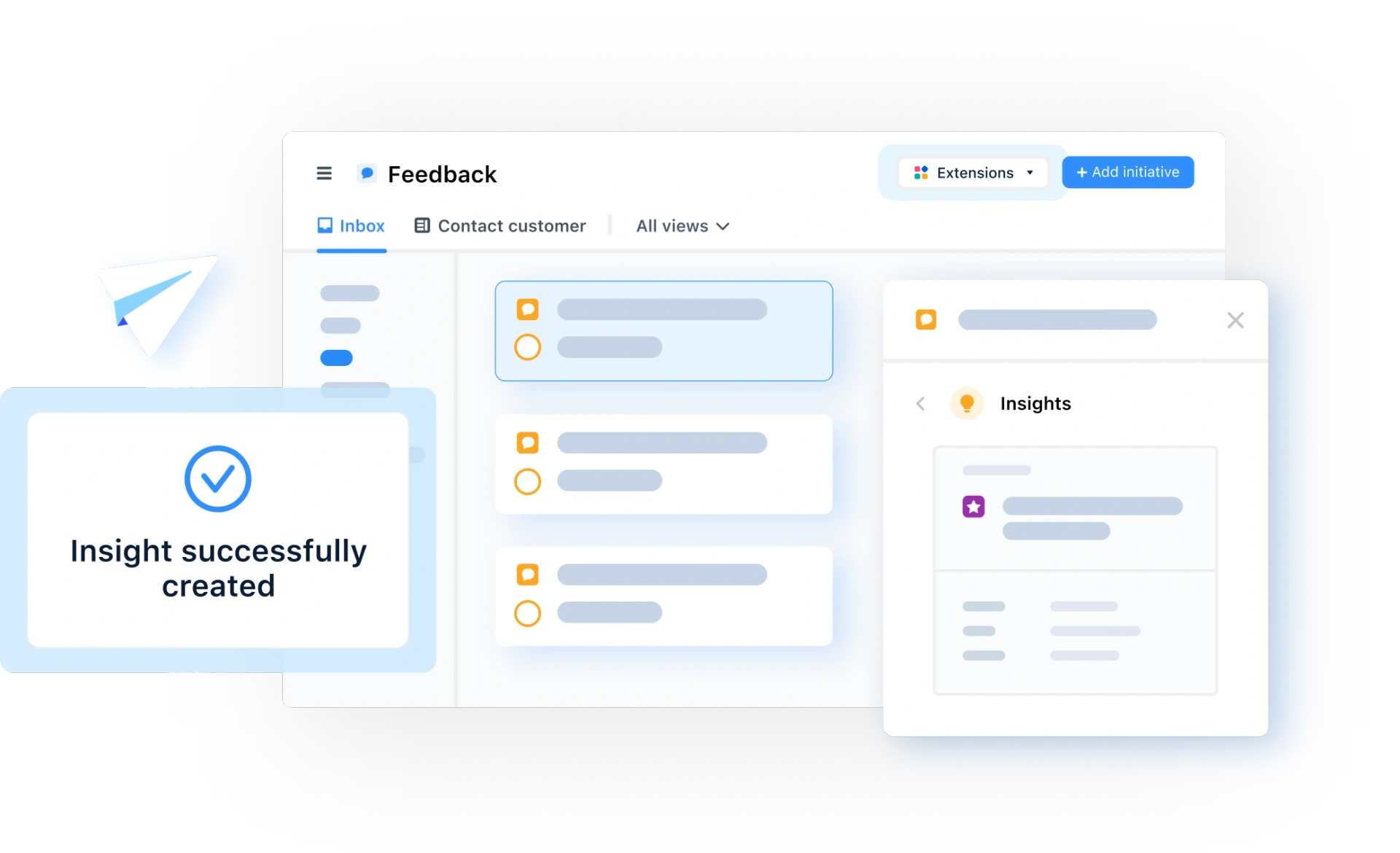
Let’s be blunt. No matter what your product or what sector you operate in, your customer is the core driver of business and your most valuable asset. If you choose to ignore customer feedback, you’re choosing to lose those customers. It couldn’t be any simpler.
Listening to your customer means they gain a personal investment in your business that translates into long-standing brand loyalty that no amount of marketing can achieve. Offering somewhere for your customers to give their feedback and be heard has many benefits, from building connections between brand and customer to brand new features that could disrupt your entire sector, leaving your competitors to play catch-up.
Direct vs. indirect customer feedback and 6 ways to collect it
Unfortunately, collecting customer feedback can be a tough job. There are so many different outlets for customers to give that feedback. It’s easy to miss something crucial that could add real value to your business or product. The types of feedback we will look at today can be split into two categories: Direct and indirect feedback.
Direct feedback
Direct feedback is feedback that has been specifically directed at a company for their consideration. Let’s look at a few ways to collect direct feedback.
Surveys
Surveys tend to be the go-to tool for gathering direct customer feedback. But just because they’re a common choice doesn’t mean surveys aren’t valuable. In fact, the opposite is true. Surveys offer a way of gaining precise feedback by setting parameters before opening them up to the public.
Reviews
Reviews are an essential form of customer feedback, because they are available for the public to see. Potential customers will often use reviews as a deciding factor in doing business with your company or not. A review can be anything from a star rating to a detailed report of the customer’s experience.
Customer service feedback
If you have ever used a company’s online customer service, you’ve likely received some form of notification that asks you to rate the service. This is usually a more general form of feedback, like a quick 1 to 5 rating of satisfaction.

Indirect customer feedback
Indirect customer feedback isn’t presented directly to a company, but rather refers to the conversation around your product or company. It can provide you with more candid opinions that you might not hear when asking for direct input from customers.
Thanks to advances in technology, indirect customer feedback has become easier to track. Here are some of the ways you can gather indirect feedback about your company or product.
Social media
Like reviews, social media is a very public platform and can be seen by potential customers when choosing your company/product or looking elsewhere. Social media is now the most significant source of word-of-mouth and can seriously affect your business’s success.
Comments
We often don’t view comments as actual feedback, including the person commenting. However, some comments can offer valuable insights from people that may not even interact with your company or product and therefore offer an honest view of what outsiders think.
Support ticket spikes
Companies that use a support service such as ZenDesk have access to a whole range of data for indirect customer feedback. Seeing a spike in support tickets or an increase in page views on a specific ticket — especially regarding the same issue or feature — is a surefire indicator that something needs attention.
How customer feedback used to be managed
It doesn’t feel like too long ago that we were still manually processing customer feedback. This would involve someone sifting through long email threads or long surveys to try to find some value. They would then write down key points on post-it notes or add them to a giant spreadsheet that the team pretended to look at (but in reality, no one ever did).
These methods simply don’t work anymore because of how decentralized customer feedback has become and how much more feedback we have at our fingertips. They’re all very time-consuming and, in the grand scheme of things, incredibly useless. Sure, you could take a post-it note and pass it around the office, but try to find a single person who actually takes that feedback on board... It’s going to be tough.

Customer feedback is one of the most insightful and essential tools a company should be using. By simply adding feedback to a spreadsheet or trying to make sense of a wall of post-it notes, you may feel like you’re acting on that feedback, but deep down, you know that no one is going to look through a gigantic spreadsheet to eke out any value from it.
Managing customer feedback with airfocus Insights
airfocus has always offered teams a way to figure out what the perfect product management platform looks like for them. You can choose the features you need and simply ignore the ones you don’t. Insights is no different.
All your feedback in one place
airfocus Insights offers a centralized space for all customer feedback, no matter where it comes from. Insights can then organize the feedback in valuable ways, using parameters that you can set to utilize the feedback and uncover valuable insights from the people who use your product the most.
Set up different views to make management and visualization easier
airfocus is, and always has been, putting our users first. One of the main things we love about our users is that they are all unique. That’s why we make all our products with customization in mind. So instead of working our way, you can work your way with a helping hand from us. So it will come as no surprise that we designed Insights with the same principles in mind.
No matter if you prefer a standard inbox view or if you’re used to Kanban-style boards or tables, you can view your data your way.

Segment and filter information that’s important
When creating Insights, we knew that every single piece of feedback isn’t relevant to every situation. That’s why we made it simple to filter feedback, leaving you with only the relevant details for the task at hand.
Each unique view comes with customizable filters and fields. This places you in the driving seat and allows you to see the data you need when you need it.
Include everyone in your team in understanding the life cycle
Insights offers easy integration with Intercom, as well as an excellent extension for Google Chrome. This allows customer-facing teams to interact and push feedback directly to the development team, helping everyone understand the customer life cycle.
Close the feedback loop and get back to your customers
It can be frustrating for a customer who takes the time to give feedback, and then no one responds. Customers don’t want to feel like they’re yelling into a black hole, especially if they’re personally invested in your product.
Insights can help build transparency between your business and your customers by keeping them informed and up to date.
Turn feedback into actionable tasks
Insights can connect directly to your product backlog. Once you have your feedback, you can highlight the valuable insights and link them to ideas and actionable tasks that go straight to your product backlog.
Let airfocus help you work the way you want
Of course, we could talk all day about how great we think our new Insights app is, but we would much rather show it to you.
That’s why we offer a hands-on experience with one of our experts who will show you everything airfocus has to offer your business.
Book a personalized demo today!

Andrei Tiburca

Read also





All product feedback in one place

Experience the new way of doing product management



